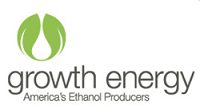The Energy Regulatory Commission of Mexico (CRE) has published new fuel regulations that allow for the blending and sale of up to 5.8 percent ethanol in the country’s fuel supply outside of three major metro areas of Mexico City, Guadalajara and Monterrey. The new fuel regulations will become effective in 60 days after publication, which took place today. This marks the first time in Mexico’s history that the country has established a policy of ethanol. Several U.S.-based organizations have been working to promote the export of American made ethanol and applauded this development.
 “By approving new fuel standards that allow for ethanol blending at 5.8 percent rate throughout much of the country, the Mexican Energy Regulatory Commission has taken an important step forward in improving the quality of motor fuel provided to its citizens,” said Emily Skor, CEO of Growth Energy.
“By approving new fuel standards that allow for ethanol blending at 5.8 percent rate throughout much of the country, the Mexican Energy Regulatory Commission has taken an important step forward in improving the quality of motor fuel provided to its citizens,” said Emily Skor, CEO of Growth Energy.
Skor continued, “These standards aren’t applied universally throughout the entire country, however, so there is certainly more progress to be made. Ethanol is a cleaner burning fuel additive that increases octane and reduces reliance on toxic cancer-causing additives. Our collective goal should be greater harmonization across all of North America on fuel regulations that embrace cleaner burning biofuels like ethanol because that is in the best interest of every mother, father and child. Growth Energy will continue to work with our public and private sector colleagues in Mexico to clearly demonstrate the value of ethanol to their environment, water quality, rural sector and consumers.”
![]() Tom Sleight, president and CEO of the U.S. Grains Council, said of the announcement, “We are pleased to see Mexico begin to embrace the inclusion of fuel ethanol in their gasoline. The U.S. Grains Council has worked in Mexico for many years and has seen enormous growth in that market’s demand for U.S. products of all types in the past two decades. We welcome this positive development related to ethanol use and what it could mean for furthering of the U.S.-Mexican trade partnership.”
Tom Sleight, president and CEO of the U.S. Grains Council, said of the announcement, “We are pleased to see Mexico begin to embrace the inclusion of fuel ethanol in their gasoline. The U.S. Grains Council has worked in Mexico for many years and has seen enormous growth in that market’s demand for U.S. products of all types in the past two decades. We welcome this positive development related to ethanol use and what it could mean for furthering of the U.S.-Mexican trade partnership.”
He continued, “We look forward to continuing to work with our colleagues in the U.S. ethanol industry to provide Mexican regulators, fuel industry officials and the public with information that highlights the proven benefits ethanol can provide for air quality and rural economic development in their country. We are hopeful that all of Mexico will be able to achieve these benefits from ethanol use soon.”
![]() Bob Dinneen, president and CEO of the Renewable Fuels Association (RFA), said, “The Mexican Energy Regulatory Commission should be commended for recognizing the positive role ethanol can play in advancing that country’s energy, economic and environmental policies. Ethanol blended gasolines can reduce all criteria pollutants – carbon monoxide, ozone, particulates and toxics. As a result, we believe the Commission has erred in excluding ethanol use from the three most populous cities.”
Bob Dinneen, president and CEO of the Renewable Fuels Association (RFA), said, “The Mexican Energy Regulatory Commission should be commended for recognizing the positive role ethanol can play in advancing that country’s energy, economic and environmental policies. Ethanol blended gasolines can reduce all criteria pollutants – carbon monoxide, ozone, particulates and toxics. As a result, we believe the Commission has erred in excluding ethanol use from the three most populous cities.”
Dinneen added, “We will continue to work with our partners here and the Mexican government to assure the most up-to-date science is applied, providing the Commission with confidence the use of ethanol will help them in their effort to fight ozone pollution and provide a more open and competitive market for the benefit of Mexican consumers.”

